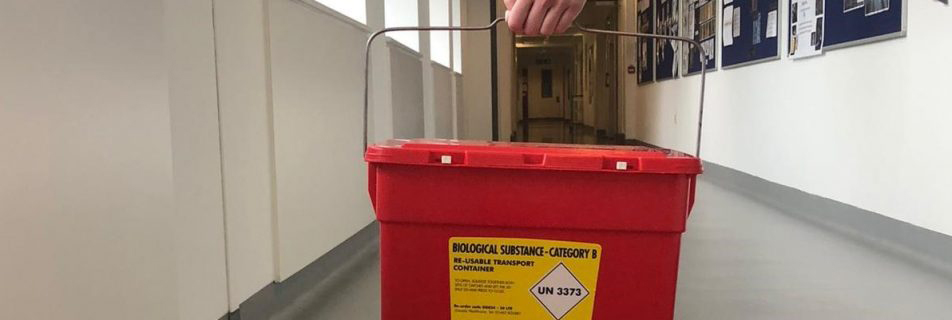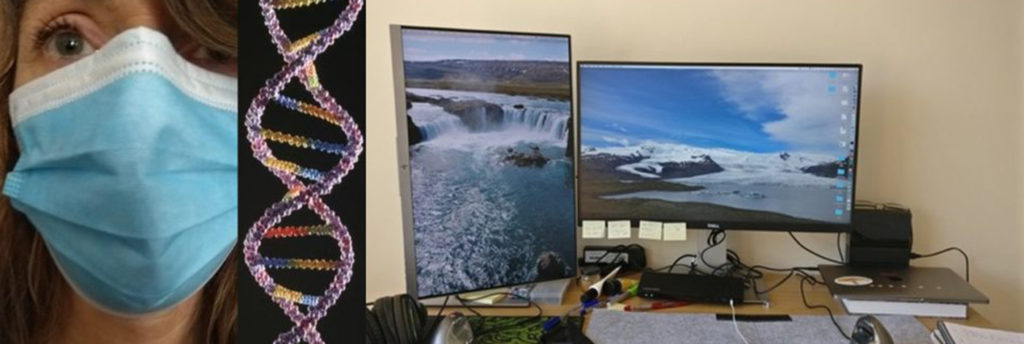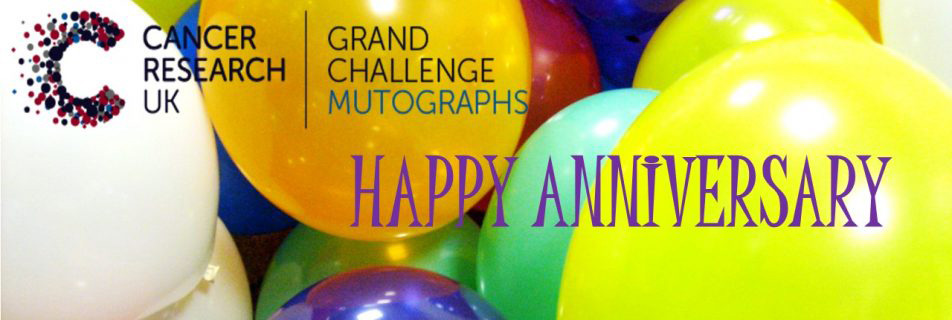In May 2019, patient advocates Mimi McCord and Maggie Blanks travelled to Czech Republic to meet some of the researchers working on the Cancer Research UK Mutographs of Cancer Grand Challenge project and find out more about the experiences of cancer patients in the country. https://www.mutographs.org/
They were accompanied by the project’s public engagement and patient and public involvement coordinator, Louise Walker, along with Ghislaine Scelo and Behnoush Abedi-Ardekani from IARC and science writer Kat Arney. In this second guest post, Kat describes what they discovered about the causes of cancer in the region.
As recently as 2014, the Czech Republic, a small central European country, held the number one slot in three notable international league tables: the amount of beer drunk per capita, and the incidence of kidney and pancreatic cancers.
While the nation retains the top spot for beer drinking, putting away more than 140 litres per person every year (more than twice as much as beer-loving Brits), it has fallen to 4th and 8th places for pancreatic and kidney cancer incidence, respectively.
This may be a reflection of improved diagnosis and accuracy of statistics in other countries rather than a significant drop in incidence in the country. But even so, it still adds up to many thousands of people every year, causing misery for patients and their families and placing a significant burden on the health service.
“Mrs P”
We met Mrs P – a married woman with a 25-year-old son – who was first diagnosed with kidney cancer in 2014. A friendly blonde woman with a perfect red manicure, she describes her cancer as a complete surprise, and was only diagnosed when she noticed blood in her urine and went to the emergency room at St Anne’s Hospital in Brno.
She had surgery at St Anne’s and was referred to the Masaryk Memorial Cancer Institute in Brno when further kidney tumours appeared in 2016, but by 2017 the cancer had started to spread through her body. Right now she’s doing well on a drug called sunitinib (Sutent), which seems to be holding the cancer at bay, but her doctors tell her it’s only a matter of time before it starts growing again.
At 43, she is unusually young – the median age for kidney cancer in the Czech Republic is around 65. Yet she is just one of more than 3,000 people diagnosed every year in the country. Although the chances of surviving kidney cancer are relatively good, with around six in ten patients surviving for at least five years, the incidence has trebled since 1977.
Survival from pancreatic cancer is far worse, with around one in twenty patients surviving five years or more after diagnosis overall, rising to around one in three for those diagnosed at stage 1 and offered curative surgery. Yet the causes underlying such high rates of these two cancers remain unknown, despite more than two decades of research.
“Why is it so high? If you know, there is a Nobel prize for you!” joked pancreatic cancer expert Miroslav Ryska at the Military University Hospital in Prague, as he talked us through the grim statistics.

Hunting for clues
In search of answers, the Mutographs of Cancer team is collaborating with three groups in the Czech Republic (Prague, Brno and Olomouc) to look for the characteristic patterns of damage left in the DNA of hundreds of cancers gathered from patients across the country.
Tumour samples and blood are sent to IARC in Lyon for processing, with DNA being sent to the Wellcome Sanger Institute for sequencing. Every patient recruited into the study also answers a detailed questionnaire asking about all aspects of their life and health, in the hope of revealing vital clues about potential causes.
Ivana Holcátová is the lead investigator on the project at Charles University, Prague, and has been searching for the causes of cancer in her country for more than 15 years. “At the beginning we thought it would be quick and obvious – genetics or industrial exposure, maybe – but it’s still a mystery.”

When it comes to kidney cancer, Holcátová suspects there may be something in the water supply. There is ongoing work investigating the role of industrial and water pollutants, particularly in the Plzen region, although a large European study recently showed that one of the chief suspects, the industrial chemical TCE, did not appear to be associated with increased kidney cancer risk. And there doesn’t appear to be a specific regional genetic variation within the Czech population that might account for the country’s significantly increased kidney cancer risk.
Not-so-prime suspects
Well-established risk factors such as smoking, alcohol consumption and poor diet undoubtedly play a role in Czech cancers, particularly pancreatic tumours, while excess bodyweight increases the risk of kidney cancer.
Smoking rates are relatively high in the Czech Republic, and it ranks 8th in the world for cigarette use. While it’s easy to point the finger at the Czech love of beer, there is a paradox at work: high alcohol consumption is associated with increased pancreatic cancer risk but lower kidney cancer risk.
Even so, these factors don’t fully explain the difference in incidence rates between the Czech Republic and similar countries, and the doctors we spoke with all pointed out that they saw plenty of non-drinking, non-smoking patients diagnosed with pancreatic and kidney cancers every year.
In eastern Europe there is a known link between kidney cancer and exposure to the plant chemical aristolochic acid, which can make its way into the food chain through contaminated wheat. But a large study of kidney cancer patients across Europe showed that while tumours in Romanian patients appear to carry the characteristic DNA patterns seen with aristolochic acid damage, this doesn’t seem to be the case for Czech patients.

For Mrs P, and so many others like her in the Czech Republic, the mystery remains unsolved. She doesn’t remember being asked to take part in the Mutographs project or similar studies before her first operation but would have been happy to do so.
In the absence of any answers, she has had to take a pragmatic approach to her disease saying “Of course you ask ‘why me? What did I do wrong?’ But in the end, you just get on with it.”
• Read more about the science behind the Mutographs of Cancer project in Mosaic – The DNA detectives hunting the causes of cancer



